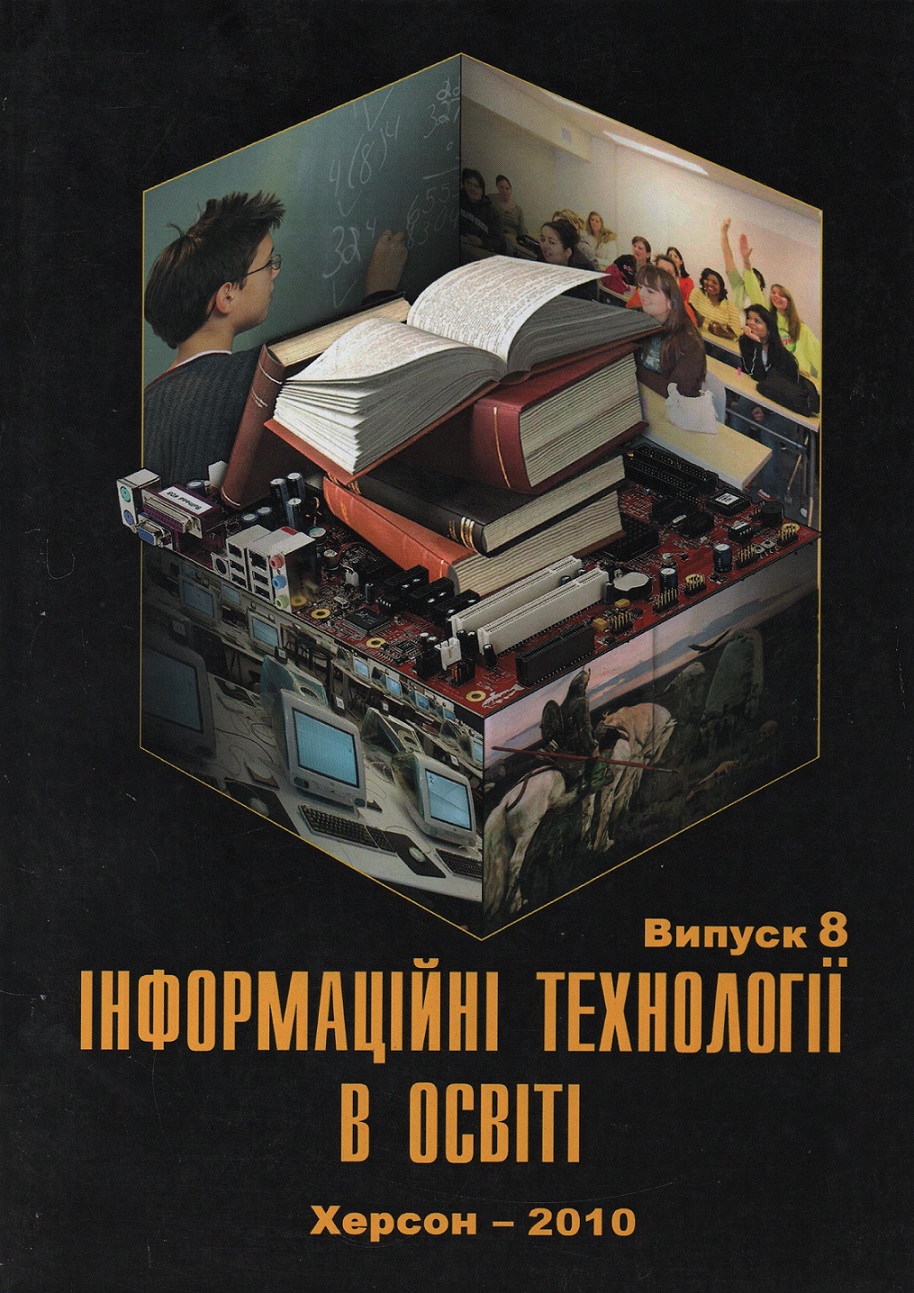МОБІЛЬНІ АМБІЄНТИ У ІНСЕРЦІЙНОМУ МОДЕЛЮВАННІ
DOI:
https://doi.org/10.14308/ite000215Ключові слова:
інерційне моделювання, мобільні амбіенти, обчислення процесівАнотація
У статті розгядається система Інсерційного Моделювання розроблена О.А. Летичевським 100/105відділу Інститута кібернетики імені Глушкова, Національна академія Наук України,Київ,Україна [1]. Система Інсерційного моделювання (IMS) побудована над Системою Алгебраїчного Програмування (APS) також розробленого О.А. Летичевським у 1987. А також розглядаються мобільні амбієнти – обчислення процессів впровадженого Л. Карделлі та А.Гордоном у 1998, яка використовується для опису та теоретизації паралельних систем які включають мобільність [6]. У цій статті я збираюсь обсудити підхід до створення Какрасу Мобільних амбієнт у системі Інсерційного моделювання.
Завантаження
Показники метрики:
Посилання
1. Letichevsky and D. Gilbert. A Model for Interaction of Agents and Environments. In D. Bert, C. Choppy, P. Moses, editors. Recent Trends in Algebraic Development Techniques. Lecture Notes in Computer Science 1827, Springer, 1999.
2. A.Letichevsky. Algebra of behavior transformations and its applications, in V.B.Kudryavtsev and I.G.Rosenberg eds. Structural theory of Automata, Semigroups, and Universal Algebra, NATO Science Series II. Mathematics, Physics and Chemistry – Vol. 207, pp. 241-272, Springer 2005.
3. S. Baranov, C. Jervis, V. Kotlyarov, A. Letichevsky, and T. Weigert. Leveraging UML to Deliver Correct Telecom Applications. In L. Lavagno, G. Martin, and B.Selic, editors. UML for Real: Design of Embedded Real-Time Systems. Kluwer Academic Publishers, Amsterdam, 2003.
4. Letichevsky, J. Kapitonova, A. Letichevsky Jr., V. Volkov, S. Baranov, V.Kotlyarov, T. Weigert. Basic Protocols, Message Sequence Charts, and the Verification of Requirements Specifications. Computer Networks, 47, 2005, 662-675.
5. J. Kapitonova, A. Letichevsky, V. Volkov, and T. Weigert. Validation of Embedded Systems. In R. Zurawski, editor. The Embedded Systems Handbook. CRC Press, Miami, 2005.
6. Abadi, M. and A.D. Gordon, A calculus for cryptographic protocols: the spi calculus. Proc.of the Fourth ACM Conference on Computer and Communications Security, 36-47, 1997.
7. Amadio, R.M., An asynchronous model of locality, failure, and process mobility. Proc. COORDINATION 97, Lecture Notes in Computer Science 1282, Springer Verlag. 1997.
8. Berry, G. and G. Boudol, The chemical abstract machine. Theoretical Computer Science 96(1), 217-248, 1992.
9. Boudol, G., Asynchrony and the p-calculus. Technical Report 1702, INRIA, Sophia-Antipolis, 1992.
10. Cardelli, L., A language with distributed scope. Computing Systems, 8(1), 27-59. MIT Press. 1995.
11. Cardelli, L., and A.D. Gordon, Types for mobile ambients. Proc. 26th Annual ACM Symposiumon Principles of Programming Languages, 79-92. 1999.
12. Carriero, N. and D. Gelernter, Linda in context. Communications of the ACM, 32(4), 444-458, 1989.
</uk>
<en>
1. Letichevsky and D. Gilbert. A Model for Interaction of Agents and Environments. In D. Bert, C. Choppy, P. Moses, editors. Recent Trends in Algebraic Development Techniques. Lecture Notes in Computer Science 1827, Springer, 1999.
2. A.Letichevsky. Algebra of behavior transformations and its applications, in V.B.Kudryavtsev and I.G.Rosenberg eds. Structural theory of Automata, Semigroups, and Universal Algebra, NATO Science Series II. Mathematics, Physics and Chemistry – Vol. 207, pp. 241-272, Springer 2005.
3. S. Baranov, C. Jervis, V. Kotlyarov, A. Letichevsky, and T. Weigert. Leveraging UML to Deliver Correct Telecom Applications. In L. Lavagno, G. Martin, and B.Selic, editors. UML for Real: Design of Embedded Real-Time Systems. Kluwer Academic Publishers, Amsterdam, 2003.
4. Letichevsky, J. Kapitonova, A. Letichevsky Jr., V. Volkov, S. Baranov, V.Kotlyarov, T. Weigert. Basic Protocols, Message Sequence Charts, and the Verification of Requirements Specifications. Computer Networks, 47, 2005, 662-675.
5. J. Kapitonova, A. Letichevsky, V. Volkov, and T. Weigert. Validation of Embedded Systems. In R. Zurawski, editor. The Embedded Systems Handbook. CRC Press, Miami, 2005.
6. Abadi, M. and A.D. Gordon, A calculus for cryptographic protocols: the spi calculus. Proc.of the Fourth ACM Conference on Computer and Communications Security, 36-47, 1997.
7. Amadio, R.M., An asynchronous model of locality, failure, and process mobility. Proc. COORDINATION 97, Lecture Notes in Computer Science 1282, Springer Verlag. 1997.
8. Berry, G. and G. Boudol, The chemical abstract machine. Theoretical Computer Science 96(1), 217-248, 1992.
9. Boudol, G., Asynchrony and the p-calculus. Technical Report 1702, INRIA, Sophia-Antipolis, 1992.
10. Cardelli, L., A language with distributed scope. Computing Systems, 8(1), 27-59. MIT Press. 1995.
11. Cardelli, L., and A.D. Gordon, Types for mobile ambients. Proc. 26th Annual ACM Symposiumon Principles of Programming Languages, 79-92. 1999.
12. Carriero, N. and D. Gelernter, Linda in context. Communications of the ACM, 32(4), 444-458, 1989.
</en>
##submission.downloads##
Опубліковано
Як цитувати
Номер
Розділ
Ліцензія
This work is licensed under a Creative Commons Attribution-NonCommercial-ShareAlike 4.0 International License.






























